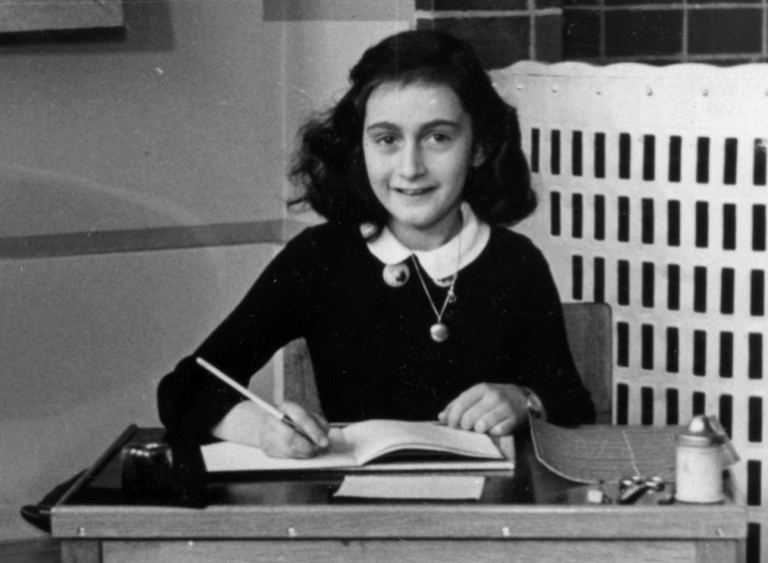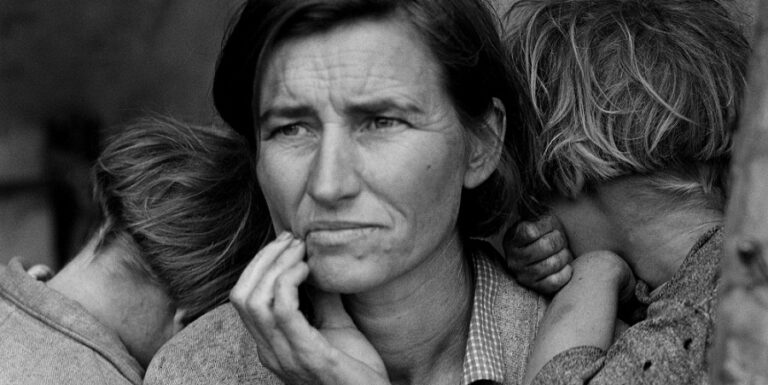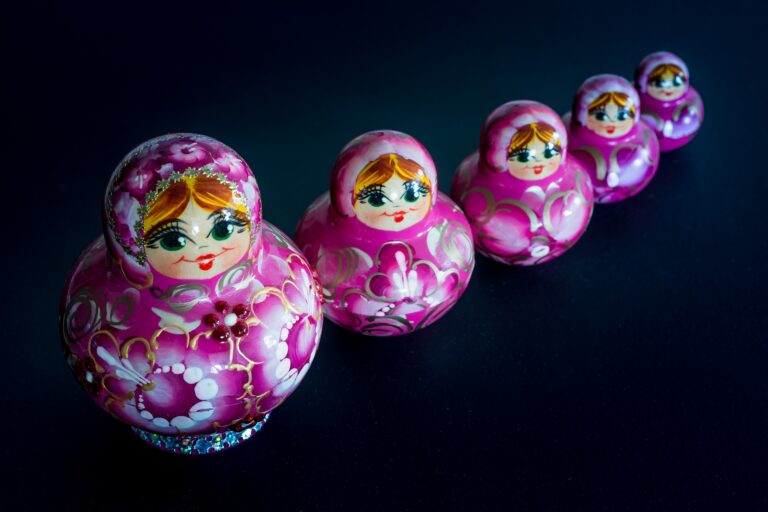Inciting Joy’s Communion
To write of joy these days is to find oneself on the defensive: how, the question goes, can one pursue joy in an era of climate collapse, an endless pandemic, a thousand injustices perpetually broadcasted, polarizations and wars and rumours of wars? “Even to speak of joy in these times,” writes Christian Wiman in the introduction to his collection Joy: 100 Poems (2017), “much less to claim to feel it—and much, much less to exhort others to feel it—might be an obscenity in the face of so much human suffering.” Yet we somehow continue to feel it, in snatches and sparks, and to intuit that it is somehow both necessary and good. This is why, I think, Mary Oliver’s prose poem “Don’t Hesitate” makes perpetual rounds on social media, almost like a poetic permission slip: “If you suddenly and unexpectedly feel joy, don’t hesitate. Give into it.” The poem goes on to name a range of difficulties—“There are plenty of lives and whole towns destroyed or about to be”—while also suggesting that joy may be a “way of fighting back.” It ends with the memorable line, “Joy is not made to be a crumb.”
In his newest book Inciting Joy, out today, Ross Gay does not hesitate. Nor does he take a primarily defensive stance, although late in the essay collection Gay does address critiques he’s heard of his work, which tend to ask how a Black man can justify spending his time and attention on projects like a Catalogue of Unabashed Gratitude or a Book of Delights, given everything that is. Such critics argue that Gay’s propensity for writing about gardens and open-hearted pleasures panders to taste for apolitical prettifications, a disengagement that is unjustifiable in an era of increasing public refusals even to acknowledge white supremacy in the present or the past. These detractors somehow overlook Gay’s trenchant celebration of Black life in Be Holding (2020), and his refusal of racist dehumanization in the poem “Within Two Weeks the African American Poet Ross Gay is Mistaken for Both the African American Poet Terrance Hayes and the African American Poet Kyle Dargan, Not One of Whom Looks Anything Like the Others,” and his tender tribute to Eric Garner in “A Small Needful Fact” (another poem whose social media presence exemplifies the power of public poetry today). Indeed, one must read only the merest sliver of Gay’s work to imagine it’s all sunshine and gardens: Gay is an unapologetically political poet if there ever was one.
But his work also refuses the division. The fundamental thesis of Inciting Joy may be that joy, along with its cousins gratitude and delight, is itself political: not only do various experiences incite joy, but joy itself incites connection and even something like an ethic of care, a movement toward justice. And while he ends Inciting Joy by addressing the critique of his devotion to gratitude and delight, Gay spends the vast majority of the collection in another frame altogether, not hedging for critics but rather wholeheartedly—one might say unabashedly—given over to the full-throated exploration of his topic. In a series of essays on such disparate themes as skateboarding, grief, pickup basketball, cover songs, orchards, death, and school, Gay expounds on his thesis, beautifully stated in the book’s introduction: joy, emerging from our shared human experience of sorrow, can provoke new solidarities, leading to love, to survival, to change that looks like shared flourishing. It is untidy and unpredictable. It cannot be disentangled from the inevitable creaturely experiences of loss and pain. But it arises in the space of sharing, of creativity and collaboration and vulnerability that can spring up in communal projects—like the buckets of supplies shared by skaters, like the choreographies of pickup basketball played in the crosshairs and racism and classism, like the moment in a dance party when folks get free, like the project of tending a beloved father in his last days and mourning his imperfect, shining self after his death.
For Gay, joy is itself political because it emerges primarily in these spaces of communion—with both human and non-human life—rather than in esoteric and isolated contemplation. It is fleshy and felt, somatic, inescapably linked to kinship. It breaks the bondage of late-stage capitalism, cropping up unannounced and powerful, like the difference between the prepackaged gloss of Amazon-owned Whole Foods (Ross Gay really dislikes Amazon’s Whole Foods) and a community garden built upon the shared sweat of shoveled compost, bursting into varieties of bloom, gathering hilarity and potlucks. Gay’s characteristic exuberant style embodies this lesson of abundance: runaway sentences that go on for a full paragraph, breathless with enthusiasm, and footnote asides that span pages and pages, like a front-porch storyteller’s parenthetical rabbit trails that bring their own particular pleasures (Gay also delights in the front-porch visit).
Yet Gay doesn’t just delight. He also sorrows. He keens. Inciting Joy is, I think, the most autobiographically transparent of Gay’s writing to date; he writes of his childhood’s happiness as well as its difficulties, of his fraught relationship with a beloved father, of his reckoning with his mother’s whiteness, of his physical and mental health history, his anger’s destructive impulses, his grappling with masculinity as a college football player, his terror in couple’s counselling. For every laudatory description of a sunflower, Gay admits to a sorrow he’s experienced or caused. Gay’s mode is confessional in several senses of the word: his claims about joy constitute a confession of faith of sorts; his frank interrogations of a complex inner life join the trend of self-exposure set out by Augustine as the first modern memoirist and the mid-century confessional poets; and his descriptions of his own imperfections—cruelty as a youth basketball camp coach, rageful impulses, disciplined unfeeling—participate in the more common sense of confession as admission of wrongs.
The result of all this vulnerable sharing isn’t just a sense of authorial intimacy; it holds out to readers a model of healthy humility, an honesty about human flaws and the possibility of growth and change. At several points, Gay renders this ethics explicit, as when in the essay on “falling apart”—a meditation on football, masculinity, Blackness, and emotion—Gay insists that sometimes we must admit that we have been wrong in order to change, however much we fear it. Against those who would condemn all public grieving as virtue signalling, Gay writes that when we openly lament the ways we have been and done wrong as a soft and perpetual practice, we “fall” not alone but together. And this, too, is joy. Gay offers himself as an example here, but as he admits to earlier habits of pretending away fault and evading grief, suggests in a brief and pointed footnote that his personal experience might be a microcosm of the nation. In this way, Gay’s tender self-disclosure—his practice of confession—invites a community of shared practice and a politics of responsibility for histories of violence and oppression.
But again, such a community isn’t a locus of self-flagellation but a site of the kind of honesty that tumbles into a deeper shared life, which is to say, into joy. And this joy, Gay insists, is not to be sneered at as a “privilege” for the few but embraced and protected as a human birthright. As we all experience pain, and as we all cause pain—albeit to radically different degrees and in radically different ways—we all ought to have access to joy as a dimension of our full humanity. Gay makes a similar argument about gardens: his delight in growing things, in seeds and orchards, is not an elite disengagement from the real world. It’s an experience everyone should have access to, like clean water and clean air and education and healthcare and food and safety. Against those who embrace gardening as a mode of self-enclosed independence, Gay argues that growing food highlights our state of “in dependence”: we depend on the abundant generosity of the land, the pollinators, the seed sharers. Gay makes a similar point later, when he cites Robin Wall Kimmerer’s Braiding Sweetgrass (2013) to argue that gratitude isn’t a pandering to the powers that be, but a radically anti-colonial and anti-capitalist stance toward the abundance of the world, its unearned gifts and necessary collaborations.
Gay finds these bonds in the garden and orchard, in the sweet sway of music, on the basketball court and in the closeness of death, but also in the space of the classroom. Admitting to his own embeddedness in the rotten edifices of higher education, Gay writes with great passion about the kind of teaching he is committed to now that he carries the protections of tenure. It’s a teaching predicated not on mastery or evaluation but—and here I hear echoes of bell hooks—on shared practices of curiosity and even love. Gay critiques education as a mode of discipline into the dulled acceptance of misery, but in its place he offers a model of school that is a practice of “community-supported bewilderment,” one predicated on shared vulnerability, shared freedom, shared creativity, emboldened by the motto “Make Beautiful Shit Together” that hangs in his studio. Reading this essay as a teacher, I feel an invitation to a more humane and untrammeled way of being with my students. I also hear resonance with Perry Zurn and Dani S. Bassett’s recent book Curious Minds: The Power of Connection, out last month, which crafts a vision of curiosity that is inevitably relational, networked, a locus of connection that strains toward freedom.
And the resonances multiply. Inciting Joy is like an improvisation on a theme about the lies of polarization—between mind and body, intellect and feeling, thought and action, self and other. The theme is present in hooks and Zurn and Bassett and in Gay’s many sources, from Toni Morrison to Fanny Howe. I also hear it echoing in Adrienne Rich’s similarly provocative vision of networks that lead to social change. In the prose collection Arts of the Possible (2001), she writes:
there are two kinds of forces that bridge huge spaces of difference. One is solidarity, the recognition that we need to join with others unlike ourselves to undo conditions and policies we find mutually intolerable, perhaps for different reasons. This is something more powerful and equalizing than sympathy. The other force is the involuntary emotional connection felt with other human beings, in some unforeseen moment, that can move us out from old automatic affiliations and loyalties into a new and difficult comradeship.
These “unforeseen moments” are the ones Gay writes about: moments of sensory pleasure and of something that exceeds pleasure; moments of sorrow so deep they crack open into brilliance. And here I think of Abigail and Shaun Bengson’s 2021 filmed musical My Joy Is Heavy, which tracks the pains of pandemic isolation and pregnancy loss in a soulful series of original compositions and spoken words, glimpses into the untidy reality of everyday life. In the title song, which comes at the film’s end, Abigail Bengson invites the kind of community Gay lauds: “My joy is heavy / oh, help me carry / the joy that comes at the end of a life.” The song welcomes its listeners into the shared project of living all the way into the grief of loss and isolation and the joy of life and song and dance and withness, even across distances that can feel insurmountable.
Like My Joy Is Heavy, Inciting Joy is both unguarded and invitational. Gay’s sharing nudges readers toward reciprocal reflection, the voicing of which in a kind of riff may be the most fitting response to the book in the end (make beautiful shit together). Reading it, I hear echoes of my own life’s songs of joy-in-sorrow, joy-in-sharing: how early experiences of loss, especially of a beloved aunt who went missing the week of my seventh birthday, heightened my sensitivity to others’ losses and to loss’s inversion, the fullness I knew as a child in regular family gatherings rich with delicious food and mutual kindness. Or the fullness I knew on a day when my dad pulled me out of school to drive north through Michigan’s exuberant autumn foliage so I could assist his car prototype research, writing down numbers from a box hooked to the dashboard. Or years later, how a miscarriage cracked open my heart like Abigail Bengson’s in the direction of shared tenderness with others vulnerable to the vagaries of pregnancy—and in the direction of heavy joy in my two living children and their impossibly pure delight in sparrows feeding at toilet paper rolls coated in peanut butter and seeds. Or how these days my chronic diseases turn my eyes more fully toward the world’s various chronic sorrows, even as they heighten my senses to gifts like shared homemade pizza in my friends Thomas and Terri Lynn’s back yard, which is almost wholly given over to row upon row of urban garden and also the most welcoming space I know in the city. I sit in their plush second-hand patio chairs next to a potted fig tree that moves outdoors for the summer air, and I imagine my own life tended and nourished into blossom and nuzzled into pollination and fruit. I listen to our children dig in the dirt to plant rogue sweet peas in inconvenient places, and I see the blue sky, and I know that winter will come soon and do its worst. But around that time, we will also welcome a new baby into our little circle of life and friendship: we will pass him hand to hand between our carefully masked faces and exult. With Adrienne Rich, we will “taste the sweetness / of life in the center of pain.” With Mary Oliver we will “give into it.” With Ross Gay we will let this deep joy incite our shared longing for a better world for this fresh child and for all children: and we will seek to make it so.


